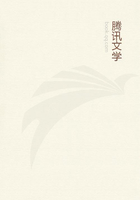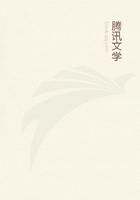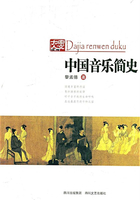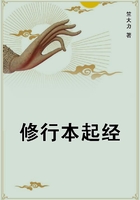"Fear," to quote a writer of the school, "has had its uses in the evolutionary process, and seems to constitute the whole of forethought in most animals; but that it should remain any part of the mental equipment of human civilized life is an absurdity.
I find that the fear clement of forethought is not stimulating to those more civilized persons to whom duty and attraction are the natural motives, but is weakening and deterrent. As soon as it becomes unnecessary, fear becomes a positive deterrent, and should be entirely removed, as dead flesh is removed from living tissue. To assist in the analysis of fear and in the denunciation of its expressions, I have coined the word fearthought to stand for the unprofitable element of forethought, and have defined the word 'worry' as fearthought in contradistinction to forethought. I have also defined fearthought as the self-imposed or self-permitted suggestion of inferiority, in order to place it where it really belongs, in the category of harmful, unnecessary, and therefore not respectable things."[47]
[47] Horace Fletcher: Happiness as found in Forethought Minus Fearthought, Menticulture Series, ii. Chicago and New York, Stone. 1897, pp. 21-25, abridged.
The "misery-habit," the "martyr-habit," engendered by the prevalent "fearthought," get pungent criticism from the mind-cure writers:--
"Consider for a moment the habits of life into which we are born.
There are certain social conventions or customs and alleged requirements, there is a theological bias, a general view of the world. There are conservative ideas in regard to our early training, our education, marriage, and occupation in life.
Following close upon this, there is a long series of anticipations, namely, that we shall suffer certain children's diseases, diseases of middle life, and of old age; the thought that we shall grow old, lose our faculties, and again become childlike; while crowning all is the fear of death. Then there is a long line of particular tears and trouble-bearing expectations, such, for example, as ideas associated with certain articles of food, the dread of the east wind, the terrors of hot weather, the aches and pains associated with cold weather, the fear of catching cold if one sits in a draught, the coming of hay-fever upon the 14th of August in the middle of the day, and so on through a long list of fears, dreads, worriments, anxieties, anticipations, expectations, pessimisms, morbidities, and the whole ghostly train of fateful shapes which our fellow-men, and especially physicians, are ready to help us conjure up, an array worthy to rank with Bradley's 'unearthly ballet of bloodless categories.'
"Yet this is not all. This vast array is swelled by innumerable volunteers from daily life--the fear of accident, the possibility of calamity, the loss of property, the chance of robbery, of fire, or the outbreak of war. And it is not deemed sufficient to fear for ourselves. When a friend is taken ill, we must forth with fear the worst and apprehend death. If one meets with sorrow . . . sympathy means to enter into and increase the suffering."[48]
[48] H. W. Dresser: Voices of Freedom, New York, 1899, p. 38.
"Man," to quote another writer, "often has fear stamped upon him before his entrance into the outer world; he is reared in fear; all his life is passed in bondage to fear of disease and death, and thus his whole mentality becomes cramped, limited, and depressed, and his body follows its shrunken pattern and specification . . . Think of the millions of sensitive and responsive souls among our ancestors who have been under the dominion of such a perpetual nightmare! Is it not surprising that health exists at all? Nothing but the boundless divine love? exuberance, and vitality, constantly poured in, even though unconsciously to us, could in some degree neutralize such an ocean of morbidity."[49]
[49] Henry Wood: Ideal Suggestion through Mental Photography.
Boston, 1899, p. 54.
Although the disciples of the mind-cure often use Christian terminology, one sees from such quotations how widely their notion of the fall of man diverges from that of ordinary Christians.[50]
[50] Whether it differs so much from Christ's own notion is for the exegetists to decide. According to Harnack, Jesus felt about evil and disease much as our mind-curers do. "What is the answer which Jesus sends to John the Baptist?" asks Harnack, and says it is this: "'The blind see, and the lame walk, the lepers are cleansed, and the deaf hear, the dead rise up, and the gospel is preached to the poor.' That is the 'coming of the kingdom,' or rather in these saving works the kingdom is already there. By the overcoming and removal of misery, of need, of sickness, by these actual effects John is to see that the new time has arrived. The casting out of devils is only a part of this work of redemption, but Jesus points to that as the sense and seal of his mission. Thus to the wretched, sick, and poor did he address himself, but not as a moralist, and without a trace of sentimentalism. He never makes groups and departments of the ills, he never spends time in asking whether the sick one 'deserves' to be cured; and it never occurs to him to sympathize with the pain or the death. He nowhere says that sickness is a beneficent infliction, and that evil has a healthy use. No, he calls sickness sickness and health health. All evil, all wretchedness, is for him something dreadful; it is of the great kingdom of Satan; but he feels the power of the saviour within him. He knows that advance is possible only when weakness is overcome, when sickness is made well." Das Wesen des Christenthums, 1900, p. 39.

